
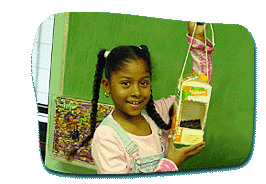
Birds are an important part of every ecosystem. Discover the diversity of your local bird population by watching as they eat. Pay close attention to the different sizes, shapes, feather colors, beaks, and habits of your feathered visitors, and become a local bird expert!
Follow these easy instructions to put up a bird feeder and keep a bird journal.
What You'll Need
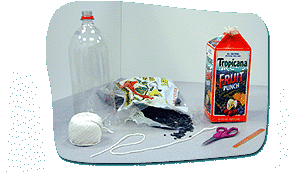
- milk or juice carton, or a 2-liter plastic soda bottle which you must wash thoroughly with warm water to kill all bacteria and germs
- scissors
- 12 inch piece of string or cord
- nail file or emery board
- bird food
What to Use for Food
The best seeds to use are black-oil sunflower seeds—many birds love them. Different foods attract different birds, try:
- wild bird seed from the pet store
- safflower seeds
- millet
- popped popcorn
- raisins
- melon, apple, or grape seeds
- cooked potato
- breakfast cereal
What to do
Making Your Feeder

Once your plastic bottle or carton is completely clean, cut a square hole—like a little doorway—near the bottom of the container. (You can draw the doorway first with a marker and follow the lines when you cut.)
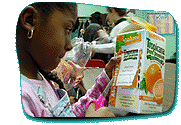
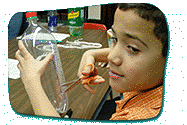

File down any sharp edges—these could harm birds.
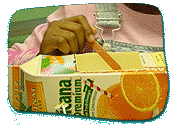

Near the top of the container, carefully make two small holes on opposite sides. Slowly pull some string or cord through the holes.
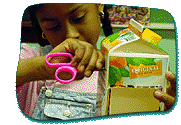
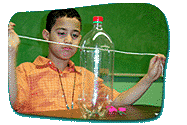

Tie the string or cord with a strong knot.
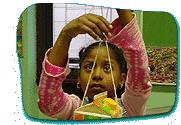
Hanging Your Feeder

Place some seeds in the bottom of the bird feeder.
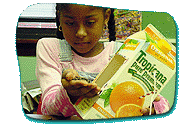
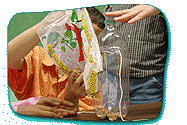

Hang your feeder. The location should be quiet—close to trees or shrubs to provide shelter, if possible—and somewhere that allows you to watch.
(Take care to keep the ground underneath your feeder free of seeds—you want to attract birds, not rats!
If you hang your feeder too close to trees, squirrels may steal the food, so hang it about ten feet away.)
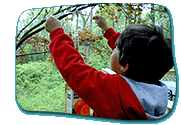

Clean out your feeder once a week.
(Get rid of all food and bird droppings—moldy food will make your bird visitors sick.
Carefully wash the feeder with soapy water, or make a new one.)
Record What You See

Keep a bird field journal and record the kinds of food you use and the number of birds of each species that visit.
(Find a guide to local birds. You can buy very inexpensive guides at your local bookstore, museum, or nature center, or borrow one from your local or school library.
Using your guide, identify your different bird visitors.
Try changing the kind of food you put out to get different visitors.)
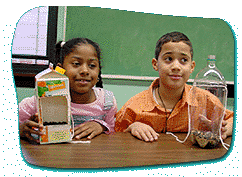
Need to attract more, or fewer, visitors?
- If your feeder doesn't attract many birds, add a bird bath. Birds love to have water to drink and bathe in. Use a shallow dish. Put some soil or sand in the bottom to prevent the birds from slipping and add a few stones for birds to stand on as they drink. Change the water every couple of days.
- Make your yard more attractive to birds by planting some native plants or shrubs. Lots of different plants will attract a greater diversity of bird species.
- Hanging your feeder near evergreen plants is best because they protect birds from predators and harsh winter winds.
- Buy some grit at a pet store. Birds mix grit with their food to help them grind it and make it easier to digest. Or, you can provide broken-up eggshells (first you MUST bake the eggshells at 250° for two minutes to kill all salmonella bacteria—salmonella kills birds.)
- If squirrels visit, put some peanuts or dried corn somewhere far from the bird feeder. This might keep them happy and distracted.
- Keep cats indoors. They are considered an invasive species because they kill hundreds of millions of birds every year.
Image Credits:
Photos: AMNH




 Biodiversity
Biodiversity
 Brain
Brain
 Genetics
Genetics
 Marine BiOLogy
Marine BiOLogy
 MicrobiOLogy
MicrobiOLogy
 PaleontOLogy
PaleontOLogy
 ZoOLogy
ZoOLogy
 AnthropOLogy
AnthropOLogy
 ArchaeOLogy
ArchaeOLogy
 Astronomy
Astronomy
 Climate Change
Climate Change
 Earth
Earth
 Physics
Physics
 Water
Water
